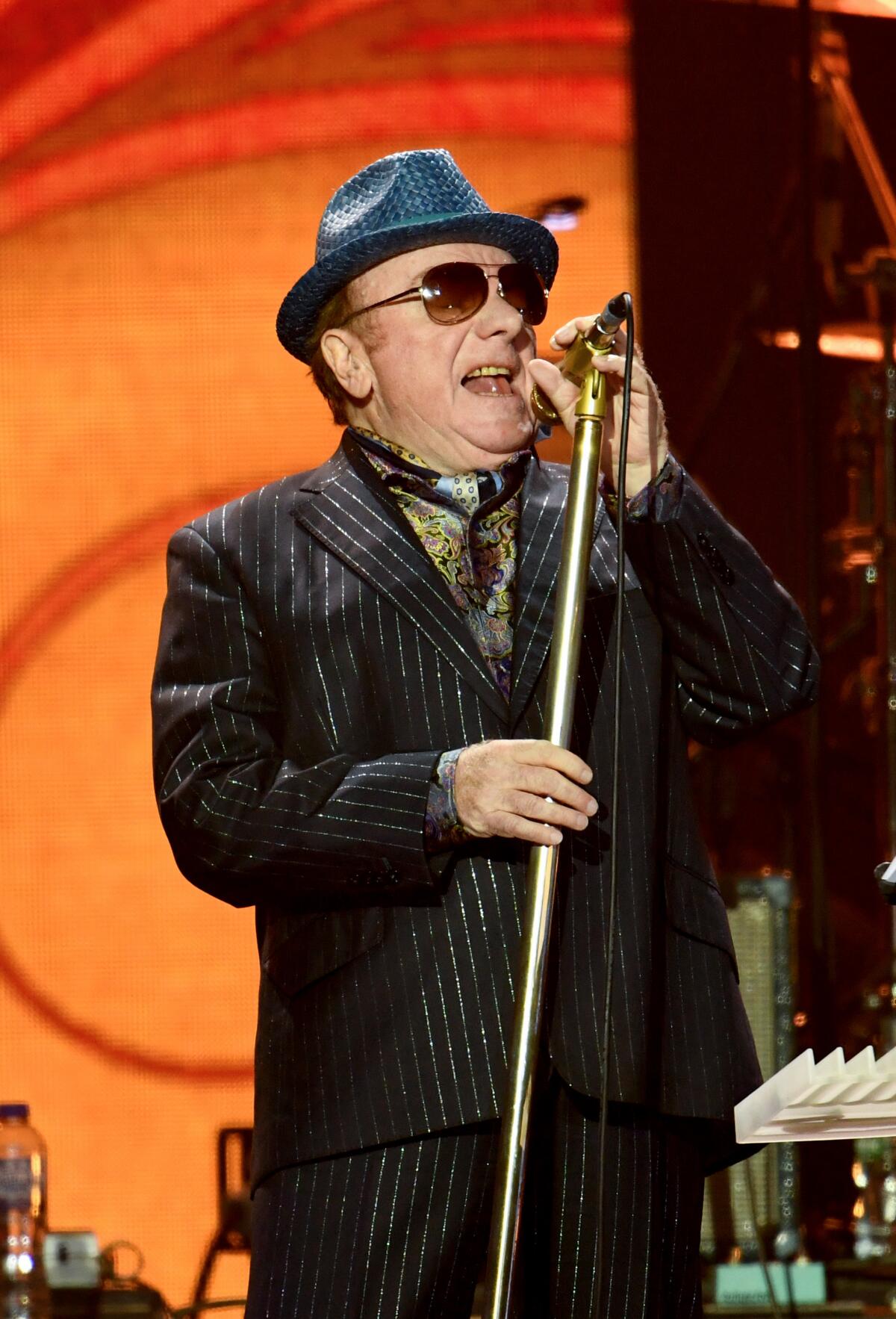Van Morrison
Van Morrison

Van Morrison, nicknamed "Van the Man" by his fans, commenced his musical journey as a teenager in the late 1950s. During this period, he played various instruments, including guitar, harmonica, keyboards, and saxophone, as a member of different Irish showbands. These showbands were known for covering popular hits of the time.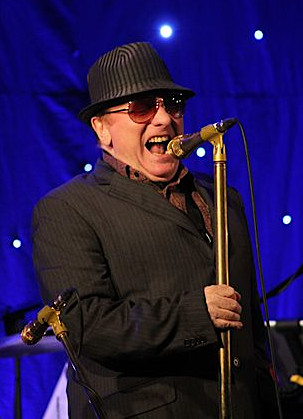
Morrison's rise to prominence occurred in the mid-1960s when he became the lead singer of the Belfast R&B band Them. It was with Them that he co-wrote and recorded "Gloria," a song that became a staple in the garage band genre. Following his stint with Them, Morrison embarked on a solo career in 1967 under the guidance of Bert Berns, releasing the hit single "Brown Eyed Girl."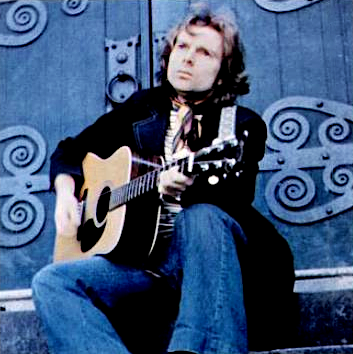
After Berns's death, Morrison's contract was acquired by Warner Bros. Records. The label granted him three recording sessions, during which he produced the influential album "Astral Weeks" in 1968. Although initially not a commercial success, "Astral Weeks" has since gained recognition as a classic.
The release of "Moondance" in 1970 further solidified Morrison's status as a major artist. Throughout the 1970s, he continued to enhance his reputation with a series of critically acclaimed albums and memorable live performances.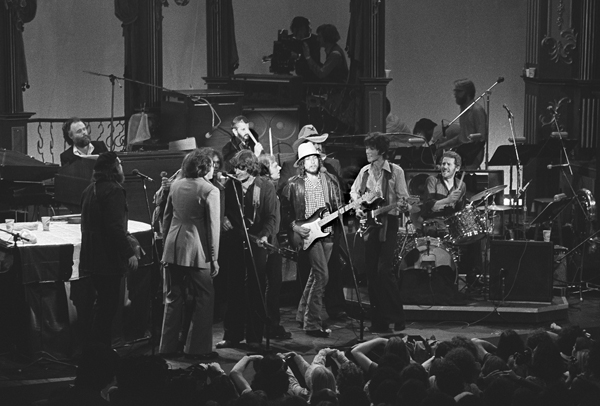
Van Morrison's musical style is characterized by a fusion of soul, early rhythm and blues, Celtic tradition, jazz, and stream of consciousness narrative. His catalog includes both conventional soul-infused compositions and expansive, spiritually inspired musical journeys. The latter is particularly evident in his acclaimed album "Astral Weeks." The combination of these elements has been labeled as "Celtic soul," and his music is often described as achieving a "violent transcendence."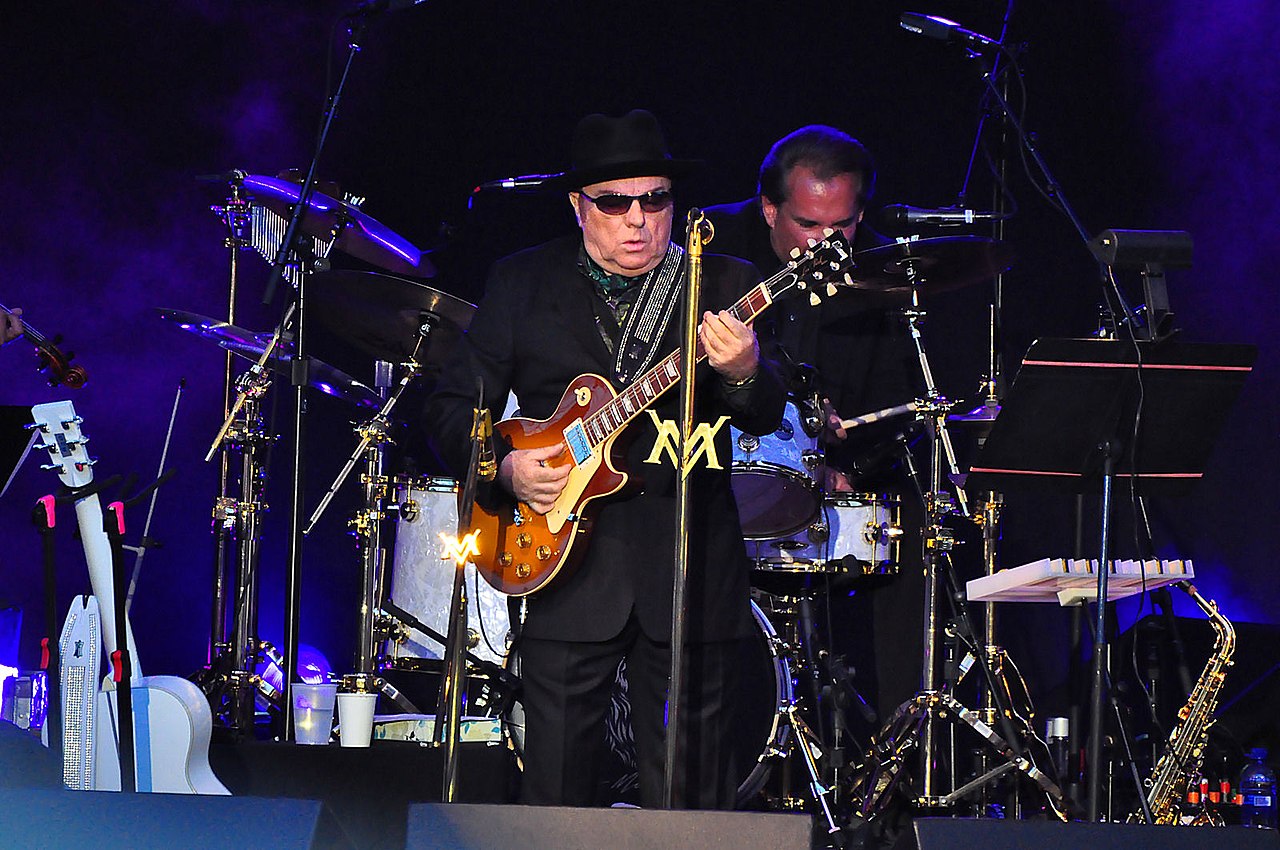
Morrison's albums have consistently performed well in the UK and Ireland, with over 40 albums reaching the UK top 40. Notably, he has achieved top-ten albums in the UK in four consecutive decades, with success continuing into recent years. His release "Latest Record Project, Volume 1" in 2021 added to this achievement. In the United States, eighteen of his albums have entered the top 40, with a concentration of twelve between 1997 and 2017.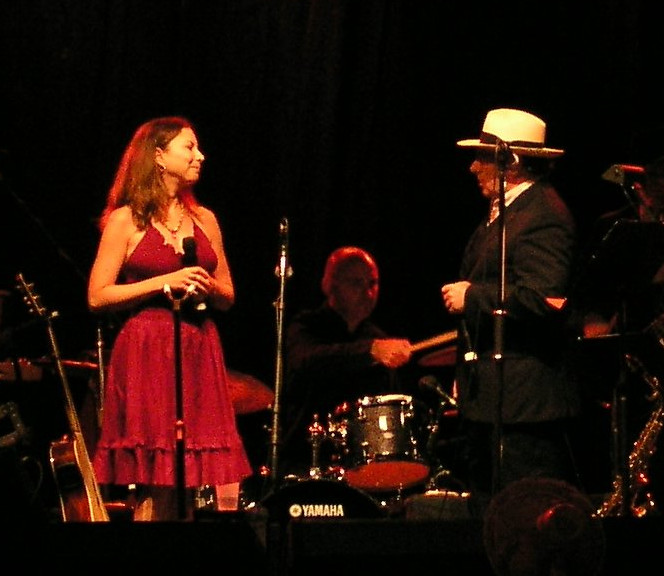
Despite his longstanding career, Morrison has maintained a prolific output, releasing more than an album per year on average since turning 70 in 2015. Over the course of his career, he has received multiple accolades, including two Grammy Awards, the 1994 Brit Award for Outstanding Contribution to Music, and the 2017 Americana Music Lifetime Achievement Award for Songwriting. He has been inducted into both the Rock and Roll Hall of Fame and the Songwriters Hall of Fame. In 2016, he was knighted for his contributions to the music industry and tourism in Northern Ireland.
Van Morrison, born George Ivan Morrison on August 31, 1945, in Belfast, Northern Ireland, grew up in a working-class Protestant family. His father, George Morrison, was a shipyard electrician, and his mother, Violet Morrison, had been a singer and tap dancer in her youth. Van Morrison, often known simply as "Van," was the only child in the family.
During his early years, from 1950 to 1956, Morrison attended Elmgrove Primary School. His father, who had one of the largest record collections in Northern Ireland, exposed him to a diverse range of musical genres. Van listened to artists such as Jelly Roll Morton, Ray Charles, Lead Belly, Sonny Terry, Brownie McGhee, and Solomon Burke. Morrison credited musicians like Ray Charles and Solomon Burke as his inspiration, saying they played a crucial role in shaping his musical journey.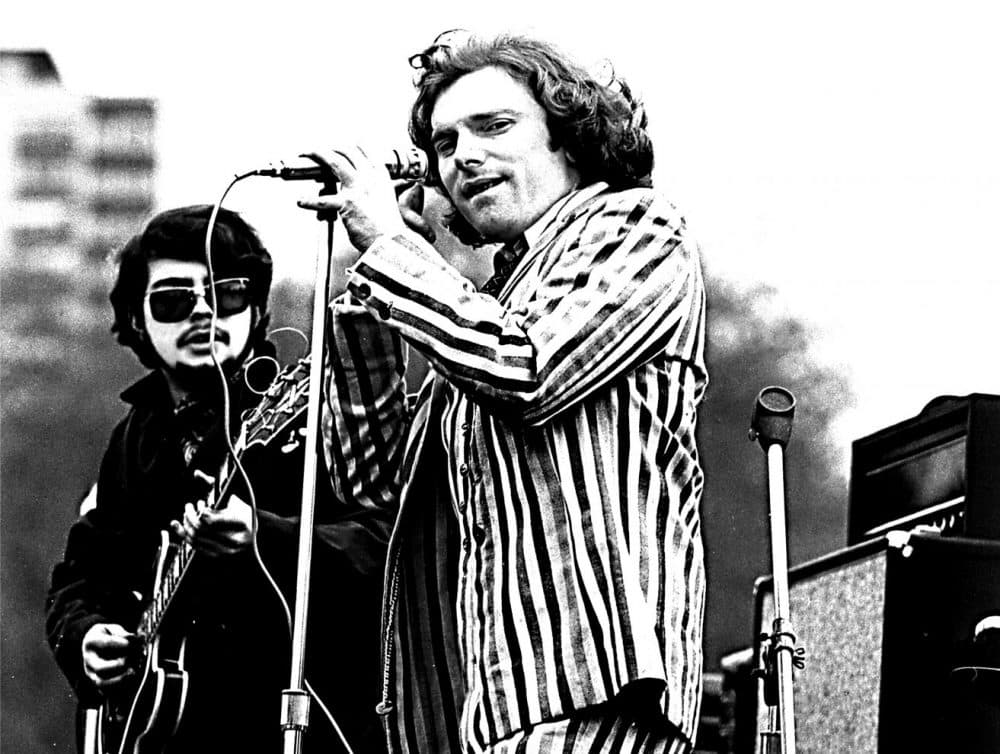
Van Morrison's musical influences extended across various genres, including blues, gospel, jazz, folk, and country music. His exposure to artists like Muddy Waters, Mahalia Jackson, Charlie Parker, Woody Guthrie, Hank Williams, Jimmie Rodgers, and Sonny Terry contributed to the rich and eclectic nature of his musical style. Morrison's early connection to skiffle music was influenced by Lonnie Donegan's hit "Rock Island Line," which was originally written by Huddie Ledbetter (Lead Belly).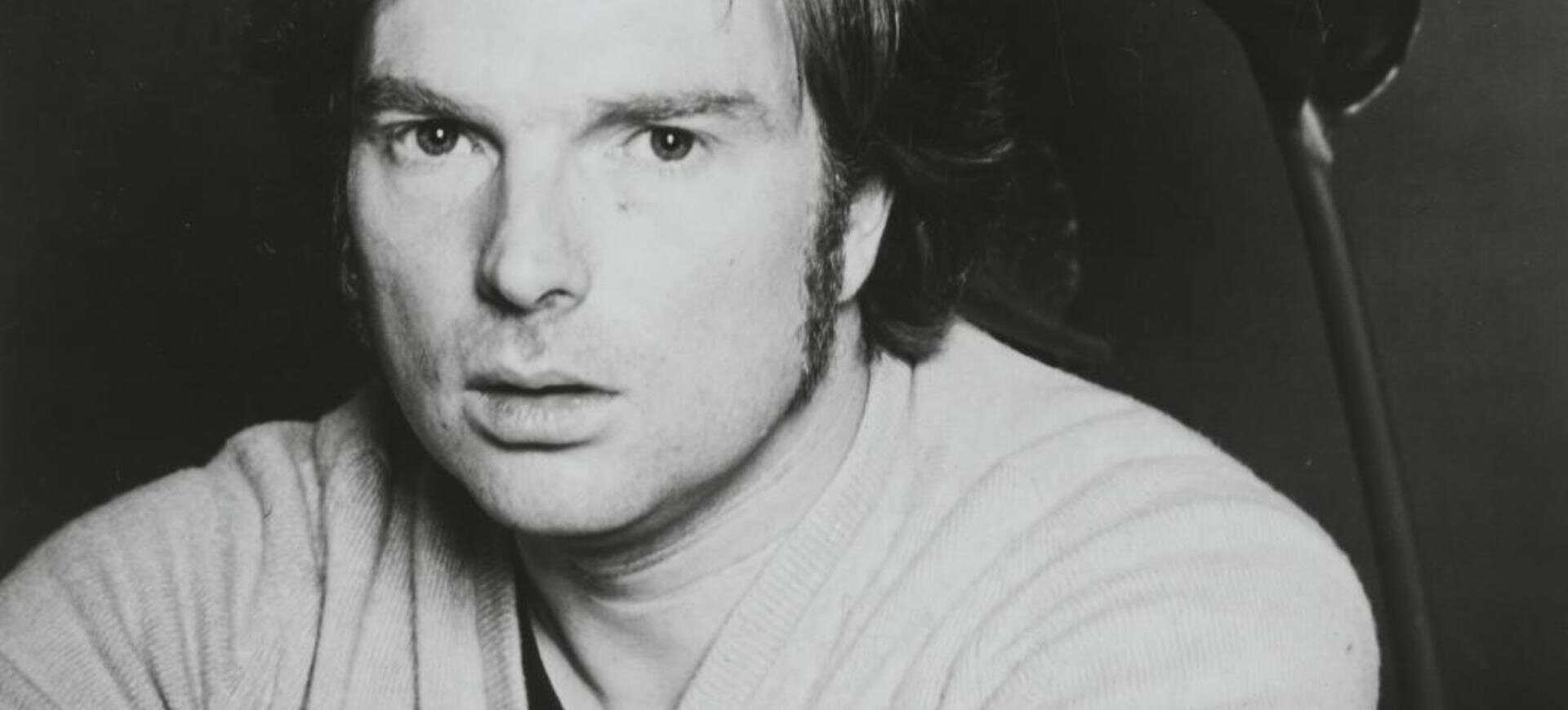
Van Morrison's early musical journey involved forming his first band, "The Sputniks," at the age of twelve in 1957. Named after the Soviet satellite Sputnik 1, the band played skiffle music, with Morrison taking the lead, singing, and arranging. Subsequent short-lived groups followed, including the skiffle band Midnight Special.
In 1958, Morrison's musical interests expanded when he heard Jimmy Giuffre playing saxophone on "The Train and The River." He persuaded his father to buy him a saxophone and began taking lessons in tenor sax and music reading from jazz musician George Cassidy. Cassidy became a significant influence and a friend to Morrison.
Now equipped with the saxophone, Morrison joined various local bands, including Deanie Sands and the Javelins, where he played guitar and shared singing duties. The Javelins later transformed into the Monarchs, with Wesley Black joining as a pianist.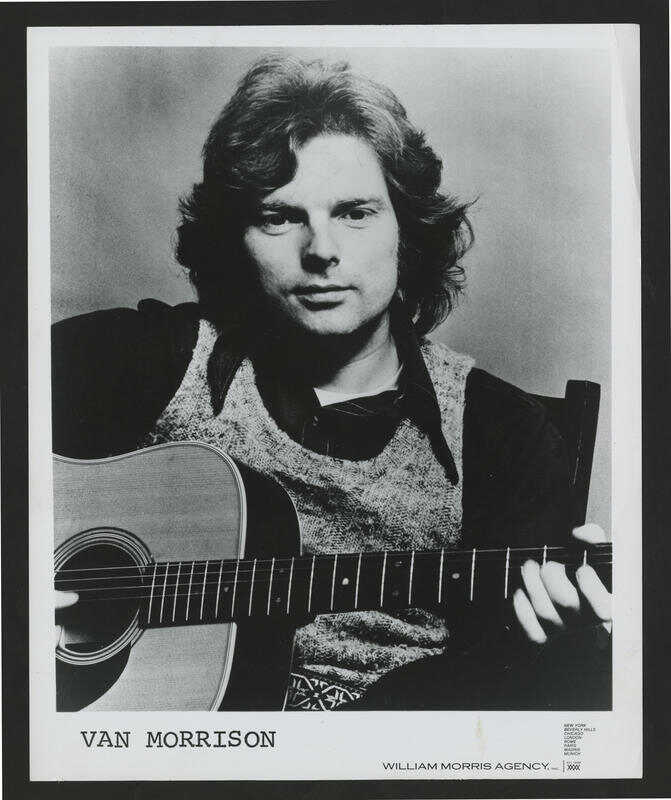
Van Morrison attended Orangefield Boys Secondary School but left in July 1960 without obtaining qualifications. Despite societal expectations of securing a regular full-time job in his working-class community, Morrison continued pursuing his musical interests. He worked as a window cleaner, a job referenced in his songs "Cleaning Windows" and "Saint Dominic's Preview."
During his late teens, Morrison played with various bands, including the Harry Mack Showband and the Great Eight. He toured Europe for the first time at age 17 with the International Monarchs, playing saxophone, guitar, harmonica, bass, and drums. The band performed in clubs and U.S. Army bases in Scotland, England, and Germany, often playing five sets a night.
In Germany, the band recorded a single, "Boozoo Hully Gully"/"Twingy Baby," under the name Georgie and the Monarchs. This marked Van Morrison's first recording experience and earned a place on the lower reaches of the German charts in November 1963.
The roots of Them, the band that propelled Van Morrison onto the international scene, trace back to April 1964. Responding to an advertisement for musicians to play at a new R&B club at the Maritime Hotel in College Square North, Belfast, Morrison formed a new band out of the Gamblers, an East Belfast group. The original lineup included Ronnie Millings, Billy Harrison, and Alan Henderson from the Gamblers, with schoolboy Eric Wrixon on piano and keyboards. Morrison played saxophone and harmonica and shared vocals with Billy Harrison.
The band was named Them, suggested by Eric Wrixon, drawing inspiration from the horror movie "Them!" The Maritime performances by Them garnered attention, and Morrison's ad-libbed performances, creating songs live on stage, set them apart. Although they played covers, Morrison introduced some of his early compositions, including "Could You Would You," written during his time with the Manhattan Showband.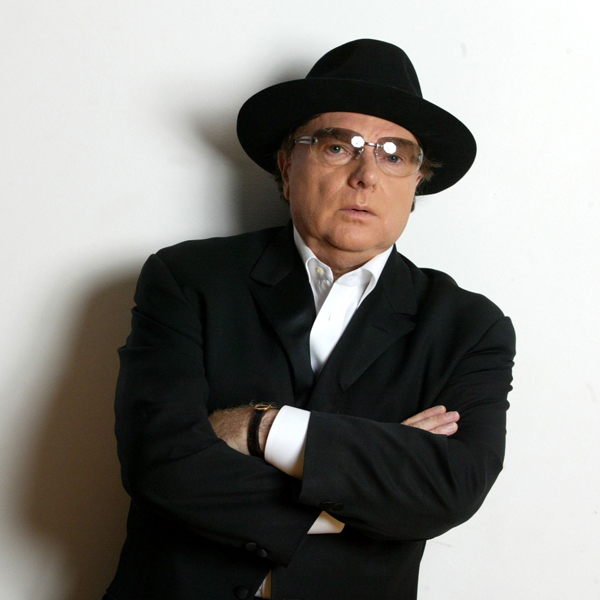
The debut of Morrison's iconic "Gloria" took place on stage at the Maritime Hotel. The song, depending on Morrison's mood, could last up to twenty minutes. Them's performances at the Maritime were dynamic and spontaneous, but Morrison believed the band struggled to capture that energy on their records.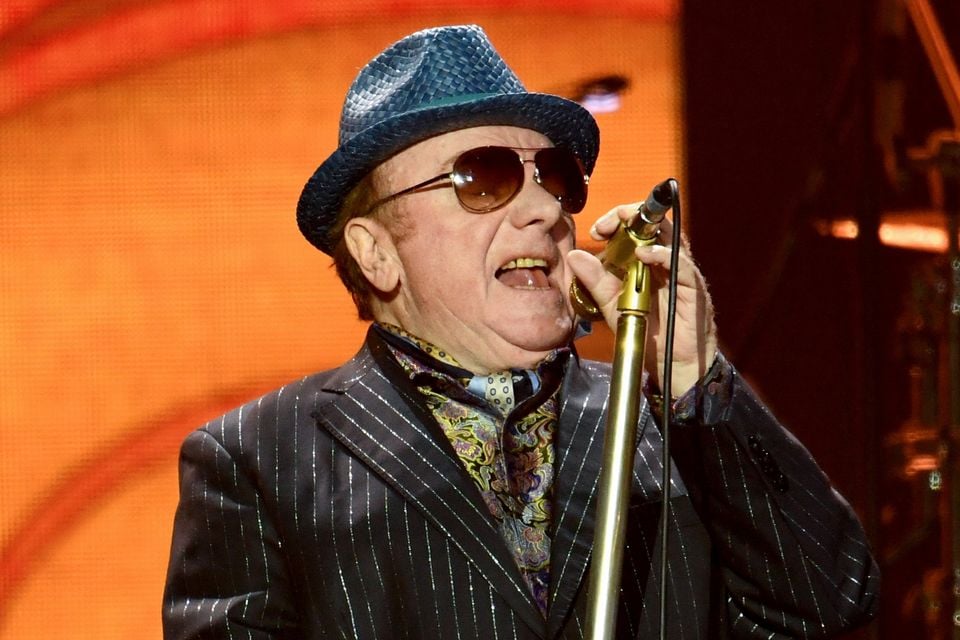
Dick Rowe of Decca Records took notice of Them's performances and signed them to a standard two-year contract. During this period, Them released two albums and ten singles. Three of their singles became chart hits: "Baby, Please Don't Go" (1964), "Here Comes the Night" (1965), and "Mystic Eyes" (1965). However, it was the B-side of "Baby, Please Don't Go," the garage band classic "Gloria," that became a rock standard, covered by various artists, including Patti Smith, the Doors, the Shadows of Knight, and Jimi Hendrix.
Following the success of their singles in the United States and benefiting from the British Invasion, Them embarked on a two-month tour of America in May and June 1966. This tour included a residency at the Whisky a Go Go in Los Angeles from May 30 to June 18. The Doors served as the supporting act during the last week of the residency. Jim Morrison, the lead singer of the Doors, was notably influenced by Van Morrison's stage presence and performance style. According to John Densmore in his book "Riders on the Storm," Jim Morrison quickly learned from Van Morrison's stagecraft, recklessness, and poetry improvisation to a rock beat.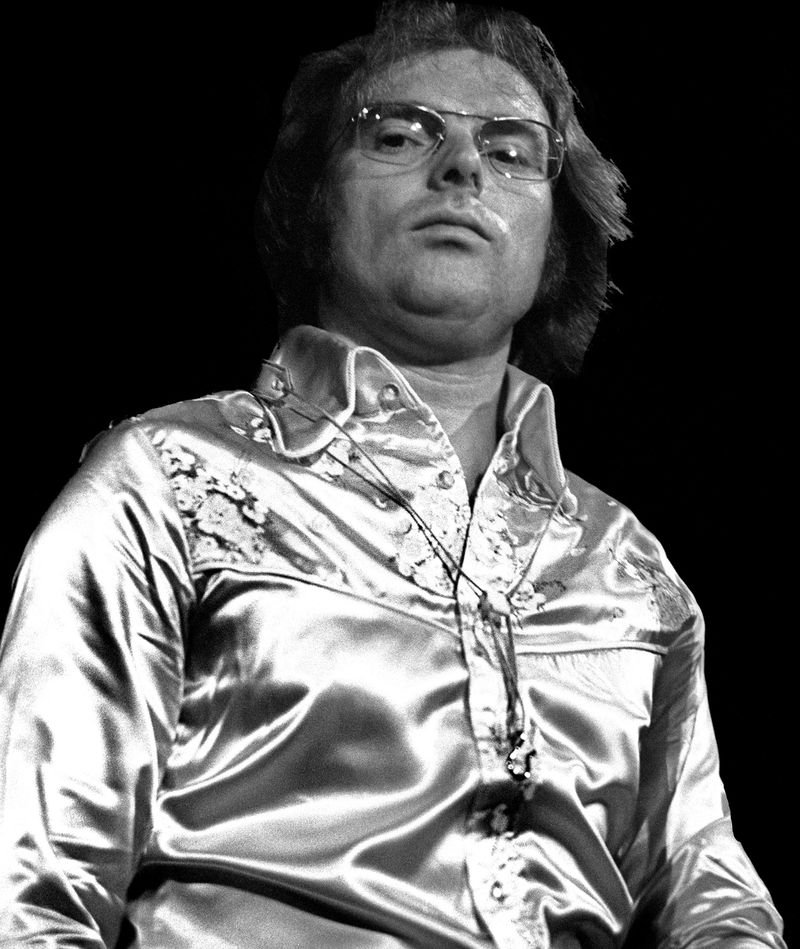
On the final night of the residency, the two Morrisons and their respective bands, Them and the Doors, jammed together on "Gloria." This collaboration showcased the influence Van Morrison had on Jim Morrison.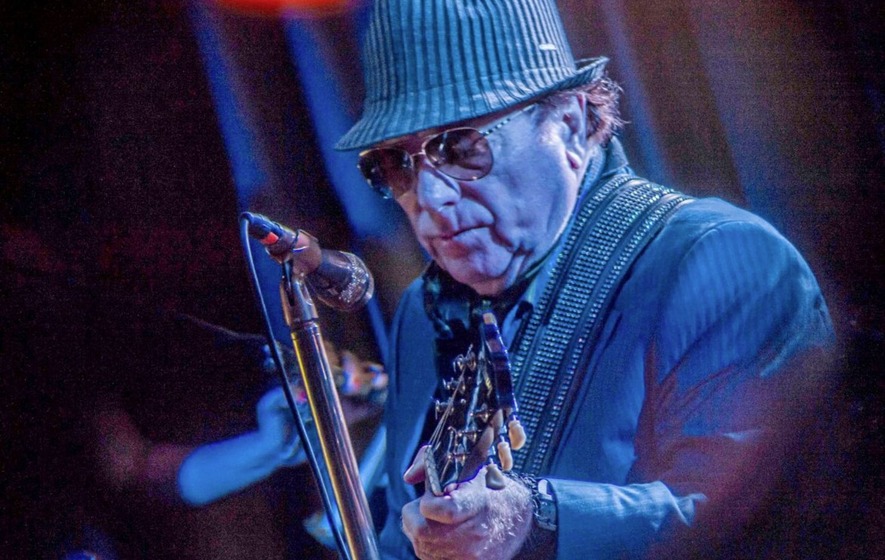
Towards the end of the tour, Them encountered a dispute with their manager, Phil Solomon of Decca Records, over revenue distribution. Additionally, the expiration of their work visas added to the challenges, leading to the band returning from America disheartened. After two more concerts in Ireland, Them disbanded. Van Morrison focused on writing songs that would later appear on his seminal album "Astral Weeks." The remaining members of Them regrouped in 1967 and relocated to America.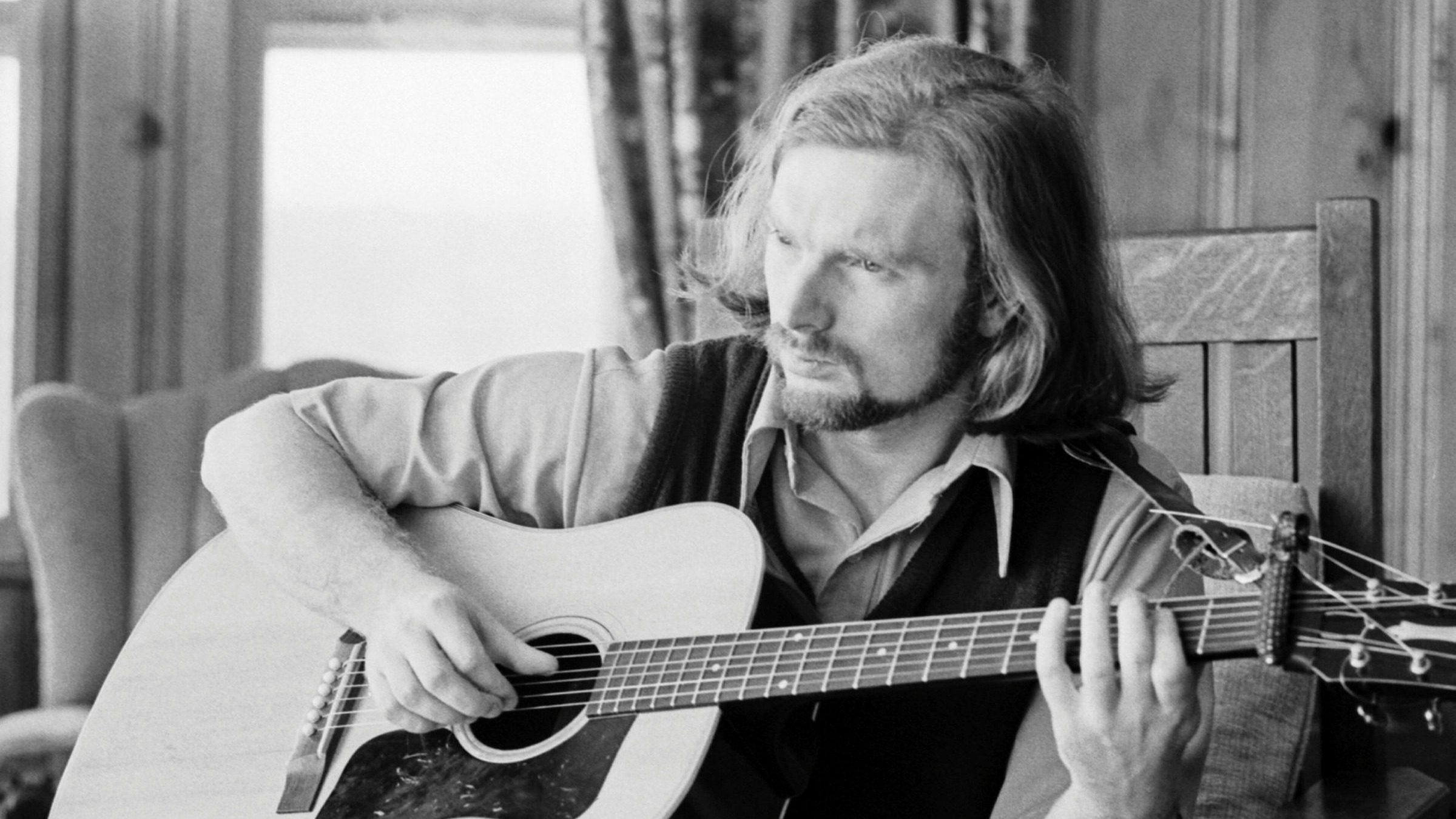
Bert Berns, the producer and composer of Them's 1965 hit "Here Comes the Night," convinced Van Morrison to return to New York to record solo for his new label, Bang Records. Morrison signed a contract without fully reviewing it and participated in a two-day recording session at A & R Studios starting on March 28, 1967. During this session, he recorded eight songs initially intended to be used for four singles. However, without Morrison's consultation, these songs were released as the album "Blowin' Your Mind!"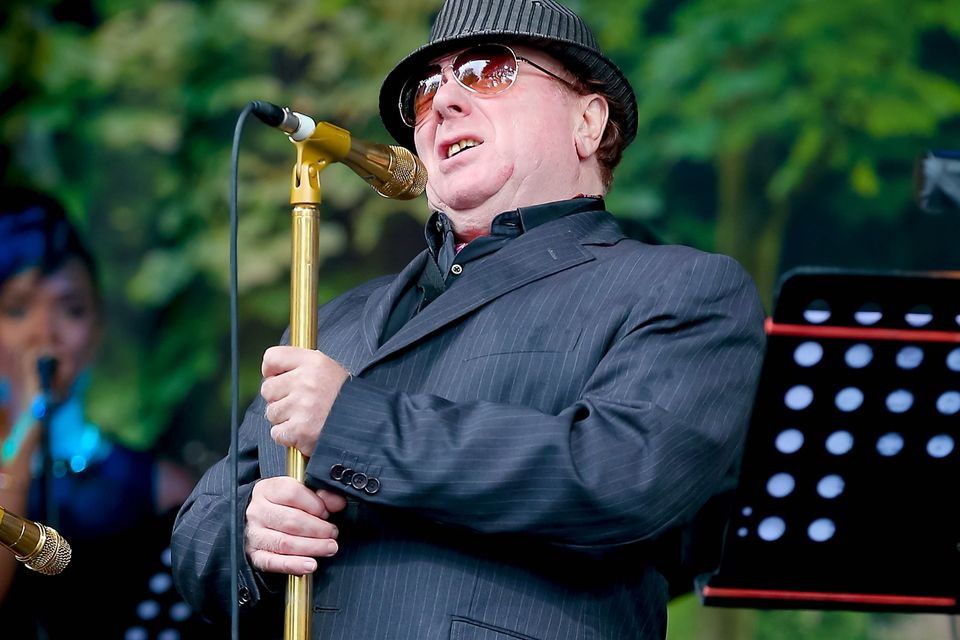
Morrison was unhappy with the album and claimed he became aware of its release when a friend mentioned buying a copy. Despite his dissatisfaction, "Brown Eyed Girl," one of the songs from "Blowin' Your Mind!", was released as a single in mid-June 1967. The song reached number ten on the US charts and became Morrison's most-played song. "Brown Eyed Girl" spent a total of sixteen weeks on the chart and is considered Morrison's signature song.
After the death of Bert Berns in 1967, Morrison found himself in a contract dispute with Berns' widow, Ilene Berns. This dispute prevented him from performing on stage or recording in the New York area. The song "Big Time Operators," released in 1993, is believed to allude to Morrison's experiences with the New York music business during this challenging period. He subsequently moved to Boston, Massachusetts, facing personal and financial problems, but eventually regained professional stability by performing the few gigs he could find and signing with Warner Bros. Records.
Van Morrison's first album for Warner Bros Records was "Astral Weeks," released in 1968. The album is often regarded as his best work and is considered one of the greatest albums of all time. Morrison performed the songs from "Astral Weeks" in various clubs around Boston before the official release.
Upon its initial release, "Astral Weeks" received an indifferent response from the public but later gained critical acclaim. The album is described as hypnotic, meditative, and possessing a unique musical power. It has been compared to French Impressionism and mystical Celtic poetry. Despite its unconventional style, the album has left a lasting impact and continues to be highly regarded.
References
- Blueyed-soul singer sir Van Morrison Retrieved 21 June 2022
- ^ Van Morrison biography at AllMusic

- ^ "Sir Van overjoyed at knighthood". BBC News. 4 February 2016. Retrieved 26 August 2018.
- ^ Turner (1993). pages 86 – 90
- ^ "Van Morrison: Astral Weeks". BBC Radio 6 Music. Retrieved 20 July 2021.
- ^ Eskow, Gary (1 April 2005). "Classic Tracks: Van Morrison's Moondance". Mix (magazine). Archived from the original on 19 April 2005. Retrieved 26 May 2009.
- ^ "SHOF: Van Morrison biography". Songwritersshalloffame.org. Archived from the original on 7 June 2011. Retrieved 7 July 2008.
- ^ Ballon, John (28 December 2008). "Musthear review: Veedon Fleece". Musthear.com. Archived from the original on 30 May 2001. Retrieved 18 May 2010.
- a b c Light, Alan (13 November 2006). "The All-Time 100 Albums". Time. Archived from the original on 7 March 2007. Retrieved 6 May 2010.
- Hale, James. "Van Morrison: "The Healing Game (Deluxe Edition)"". soundstageexperience.com. Retrieved 20 July 2021.
- ^ "Van Morrison". Officialcharts.com. Retrieved 21 June 2021.
- ^ "Van Morrison". Billboard. Retrieved 21 June 2021.
- a b "Artist: Van Morrison". National Academy of Recording Arts and Sciences. Retrieved 17 August 2017.
- ^ Rayner, Gordon (13 June 2015). "Queen's Birthday Honours: Van Morrison knighted". The Daily Telegraph. London. Archived from the original on 10 January 2022. Retrieved 13 June 2015.
- ^ "The Queen's Birthday Honours 2015". Government of the United Kingdom. Retrieved 3 July 2018.
- ^ McNeilly, Claire (22 September 2007). "It's Van: The Mam". The Belfast Telegraph. Archived from the original on 29 June 2012. Retrieved 26 September 2007.

